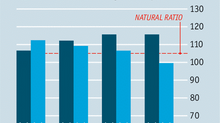Debating the Antitrust Exemption
- Eli Nachmany
- Dec 4, 2014
- 2 min read
Labor relations are an integral part of any professional sports league in the 21st century. Before the rise of player unions like the Major League Baseball Players Association (MLBPA), professional athletes had to deal with a number of wage-suppressing aspects of sport. The most egregious of these aspects was the reserve clause, which mandated that players could not market their services to other teams. While organizations like the MLBPA have worked to dissolve the reserve clause and now work with owners to draft labor contracts known as the Collective Bargaining Agreement (CBA), professional sports leagues undoubtedly still engage in anticompetitive behavior.
The Sports Broadcasting Act of 1961 established a partial antitrust exemption for leagues like the NFL, NBA, etc.; it amended antitrust laws to allow professional sports leagues the opportunity to negotiate restrictive, anticompetitive contracts with broadcast networks for television rights and effectively lock other leagues out of big television dollars. Expansion of the media in sports has resulted in networks paying exorbitant amounts of money to leagues for broadcasting rights. The NBA recently inked a nine-year, $24 billion deal with ESPN. Clearly, the NBA’s players want some of that money and just how much they’ll get will be negotiated in the drawing up of the NBA’s 2017 CBA.
With television dollars, a salary cap that NBA Players Association executive director Michele A. Roberts called “un-American,” (a salary cap is a structure where teams all agree to keep their total wages under a certain total, thus lowering the amount of money they’re willing to pay players) and concussion lawsuits in the NFL (among other issues), some argue that the deck is stacked against players. Leagues, protected by an antitrust exemption, have no obligation to be accountable to their players, these critics contend. However, the simple fact that players can negotiate a CBA forces leagues to yield concessions to players. Owners have raised minimum salaries for players who have been in the league for a few years and have also contributed to the development of player brands. Leagues like the NBA and NFL need to engage in anticompetitive behavior, or else their quality of play will decrease drastically and players will find themselves disenfranchised rather quickly. The antitrust exemption doesn’t preclude organizations from accountability; rather, it protects sport’s exorbitant profitability and benefits players’ ultimate financial interests much more than its dissolution would.



















Comentários